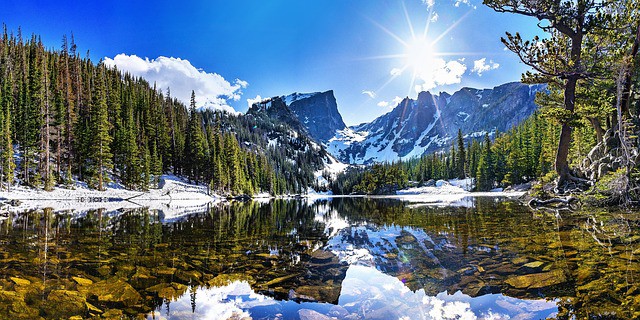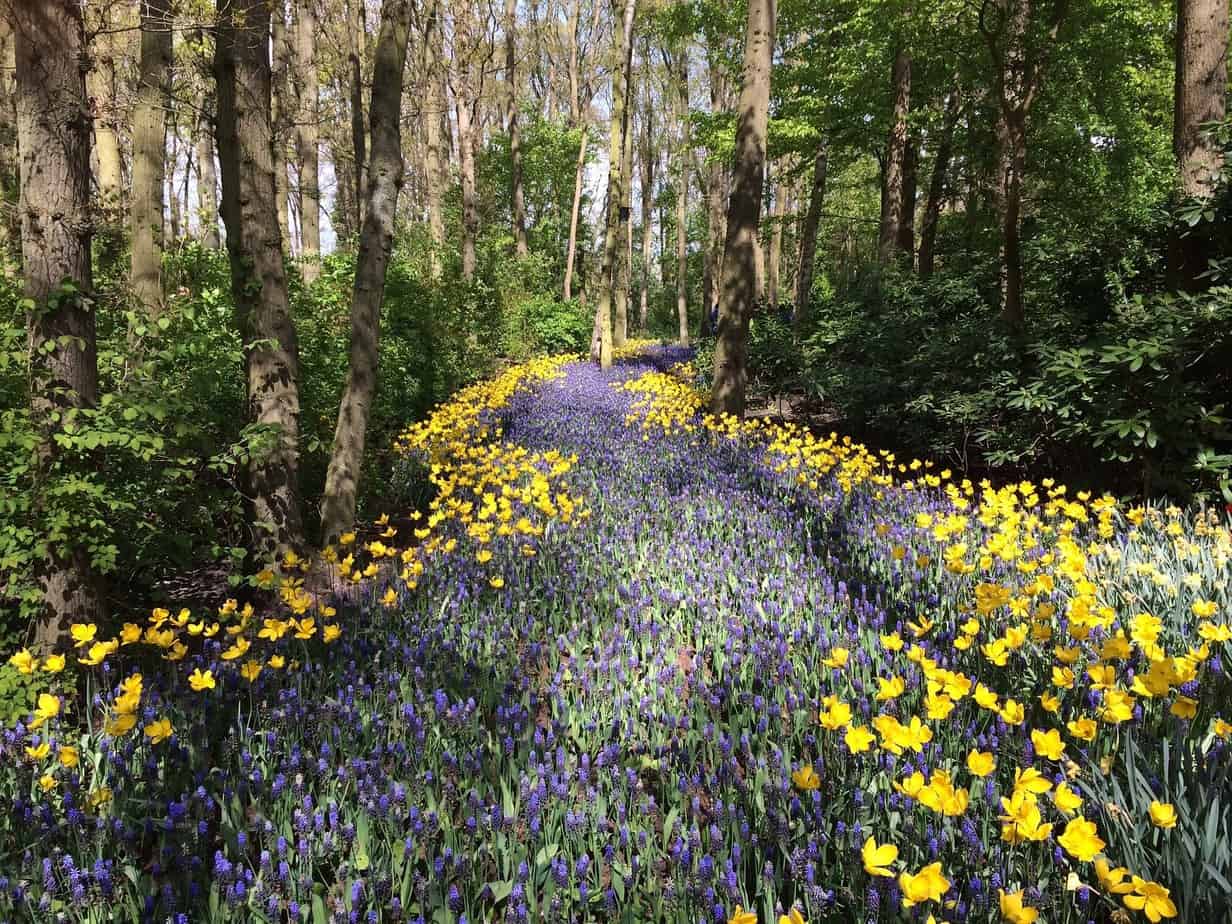For most, the camping season starts around early Spring, which runs officially from March 20th through June 21st. This is the time when many campers start to come out of their winter hibernation and the campgrounds start to fill up again.
However, depending on your resilience to cold weather and the winter elements nothing says there even needs to be a start or an end to the camping season. In fact, many campers choose to camp year-round no matter the season or the weather outside.
So instead of asking when does camping season start it might be more appropriate to ask when does popular camping season start?
Criteria for When Does Camping Season Start
However, if you have an aversion to cold weather that prevents you from camping year around or just wish not to, there are many signs or criteria you can use to determine when its time to break out the tent and start camping again.
Top Signs it’s Time to Start Camping
- Nighttime Temperatures Consistently Stay Above Freezing
- Daytime Temperature Warm Enough Not to Need the Heat from a Campfire
- Blooms on Trees and Plants
- Winter is over (Last day of Winter is March 20th)
- Your Local State or National Park Campground Opens Up for the Year
- Your Kids are Asking “When can we go camping?”
There can be many different indicators to use as a sign to start camping again. However, for those that do not wish to camp year-round, most of those indicators tend to revolve around temperatures warming up and the end of winter.
Really the best answer for when does camping season start is whenever it feels right for you and your family as it truly comes down to personal preference.
While some campers might love camping in early Spring when the average temperatures are hovering in the 30’s and 40’s, other campers might be completely miserable in those temperatures.

Are National and State Parks Open Year Around?
Yes, most national and state parks are open year-round but park services and amenities can be very limited during the offseason and certain parts of the park or roads can be closed due to winter weather.
Also if your a camper that prefers to camp in campgrounds remember that even though the national or state park might be open the campgrounds inside the park can be closed during the winter or offseason. So before you head to any national or state park during the winter or offseason its best to check their website to figure what campgrounds are open and where you can camp. A great place to start is the National Park Service – Plan Your Visit Page.
When does Camping Season End?
As mentioned above there is no official start or end to the camping season as campers can camp year-round. However, the end of the popular camping season usually ends during late fall or at the start of winter. As a reference, the start of winter and the winter solstice for the northern hemisphere is December 21st.
As with the start of popular camping season, the end of popular camping season usually coincides with the drop in outdoor temperatures and the onslaught of winter weather.
Most campers usually plan one last camping trip for the year that typically coincides with fall foliage and then pack their camping gear away for the winter months.
What is the Best Season to Go Camping?
The four main camping seasons line up with the seasons of nature including spring, summer, fall, and winter. Each camping season can be a great time to go camping and they each have their pros and cons.
The best season for camping can be very subjective depending on the camper but the most popular camping season is typically summer as this is when most people are outdoors compared to any other time of the year.
Spring Camping Season
Spring is an exciting time to go camping because everything is coming back to life in nature. Trees and plants are blooming and many animals that hibernate or stay out of sight during the winter are popping their heads thanks to the warming weather. Springtime can be a great time to camp as the temperatures tend to be on the milder side and there are very few bugs to contend with while camping.
However, for those that do not like colder weather spring might be a little too early in the year to camp. While daytime temperatures depending on the area of the country you are in can be quite comfortable, evening and nighttime temperatures can quickly drop to freezing.
Summer Camping Season
It’s easy to tell summer is the most popular camping season as this is when the campgrounds are packed and national and state park attractions are brimming with people and tourists. There is a good reason for this too as summertime can be a great time to go camping and get outdoors.
During the summer camping season, there are no limitations on the outdoor activities you can participate in, as temperatures are warm enough to accommodate all outdoor adventures including being in and around water. However, it’s not all good news for summer camping though as the heat can be unbearable depending on what part of the country you’re in and the bugs are also out in full force during the summer.
Fall Camping Season
If summer is the most popular camping season, then the fall camping season is probably the second most popular. During the fall camping season, it’s all about chasing the color of the leaves changing and fall foliage. For many campers, the fall is their favorite time to go camping, thanks to milder temperatures and the fall foliage.
For most, the fall camping season also marks the end of camping for the year. So fall is a special time for the avid camper as they know their days are numbered before the start of winter.
Winter Camping Season
The least popular camping season by far is the winter camping season. However, there can be many benefits to camping in the winter, once you get past the colder temperatures. For one the campgrounds and national and state parks are usually deserted meaning that its a great time to enjoy the solitude and peacefulness of nature. Also, the night sky is never more vivid than during the winter thanks to the low humidity and crisp air.
If you have never stared at a clear night sky during winter while camping in a remote area with no light pollution you are truly missing out.
Also, winter camping means there are no bugs to contend with and it’s a great time to camp if you are an allergy sufferer, as nature goes dormant during the winter meaning no pollen and other allergens.
Want to learn more about winter camping? Check out our article “Extreme Cold Weather Tents for Winter Camping“.

